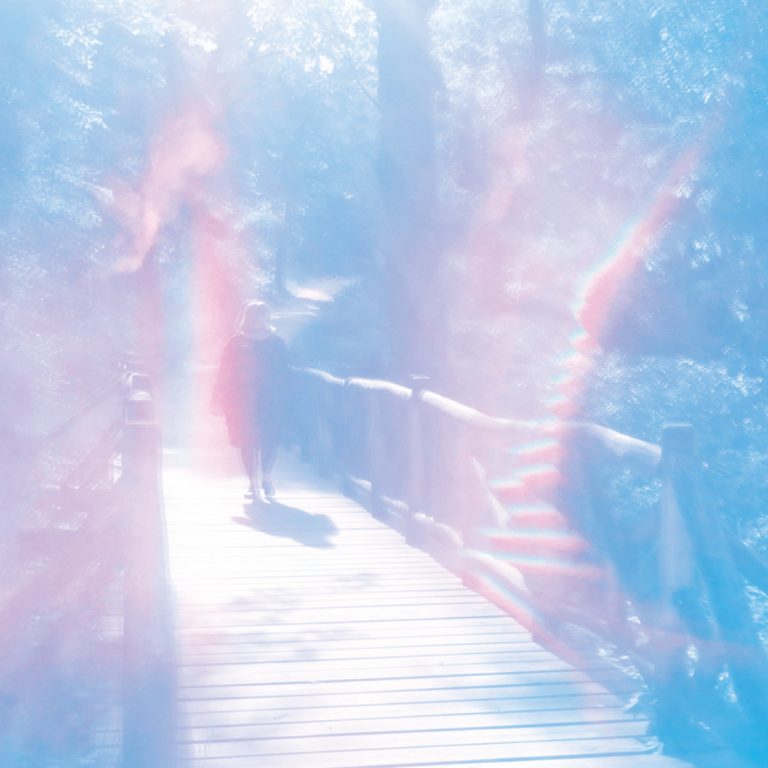Crystal Dorval has been making music under the name White Poppy for years now, and with each release, she has been gradually peeling away its layers of reverb and polishing its grainy lo-fi production to reveal pristine pop songs that have been lurking beneath all along. Her older records often felt like you were listening to music being broadcast from some far off realm, her voice swirling overhead in the distance in ethereal tones as if were being filtered through thick banks of fog.
Though her new album Paradise Gardens offers a slight shift in direction, it still drifts between the warm haze of her past releases (particularly on “Memories” and “Orchid Child”) and the pristine dream-pop she’s embracing, giving it a kind of disorienting feel at first. What’s rewarding about it though is how this easily some of the most straightforward music she has ever written, which demonstrates how much her confidence has grown as a singer-songwriter. Not only has her singing been pushed more to the front, revealing a clear and pleasing voice that had been tucked away all along, but her songwriting trades in clever metaphors in favor of blunt confessions that purposely work in contrast with the otherwise uplifting music.
Over thin programmed drums and a snaking bassline reminiscent Power, Corruption & Lies era-New Order, “Broken” is a melancholic piece of 80s pop music over which she sings comparatively somber lines like “There’s a hole in my heart / Don’t know where the pieces are.” Her voice feels at once as if it were drifting somewhere off on the distance but also whispering in your ear. The interplay between the shimmering guitar and synths makes an otherwise heartbreaking song almost feel uplifting. Depression creeps up on the shimmering “Hardly Alive” with a vengeance, something she both acknowledges and apologizes for with unguarded bluntness: “And I don’t mean to be so pessimistic / But when I’m feeling down / I can’t help it / Excuse myself for feeling sorry / It’s just a part of me leftover from tragedy.” All of this is wrapped up in fuzzed-out guitars guided by steady unintrusive beats.
The contrast works especially well on the rippling “Orchid Child”, which feels on the verge of being carried away at any moment, anchored only by her defiant words reaffirming her independence as thorny bursts of guitars pierce the cocoon-like atmosphere. Dorval has described her music as “therapeutic pop”, which is more true on Paradise Gardens than anything else she has done before. Even with the troubling lyrics about depression, heartache, and lack of motivation, it proves to be a comforting experience. And by scaling back her reliance on the reverbed guitar and allowing other elements to come into play – odd samples here and there (check the dolphin cries on “Something Sacred”) and greater use of synths and keyboards to create almost subconscious textures – it makes for a playful and worthwhile experience.
Paradise Gardens feels like an exercise in leaving the past behind and embracing new possibilities, something she alludes to on “Memories” where she sings “I am moving on / From where I used to be / All I had is gone / The past is fading.” The healing process is rarely an easy one, and it often comes with sacrifices of its own, but by confronting and working through her own personal traumas, Dorval finds the courage to reclaim a sense of self and look forward to what lies ahead, gradually putting a troubled past behind her.

